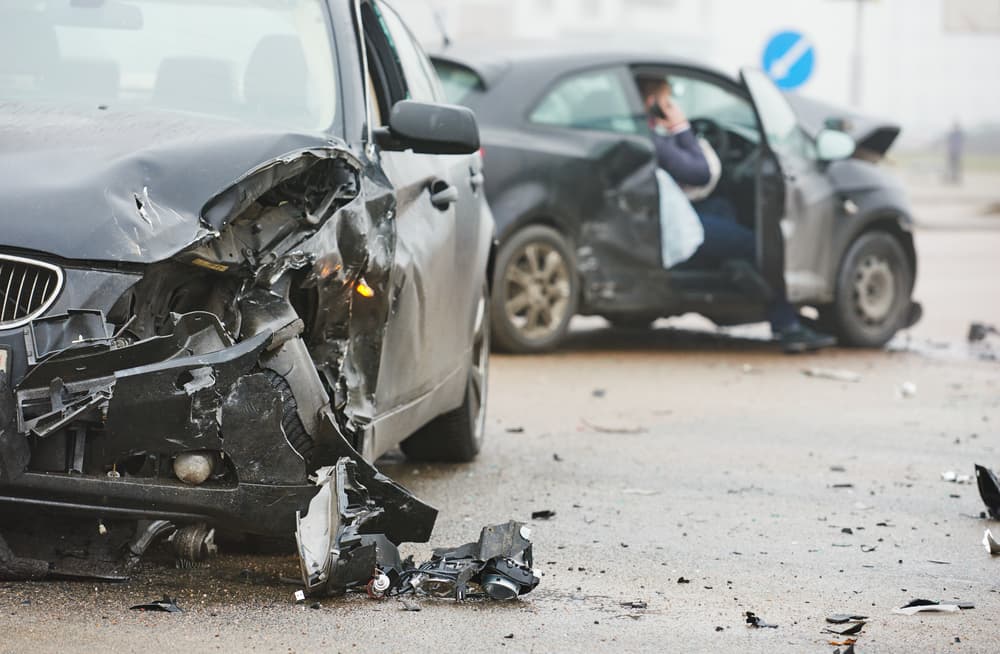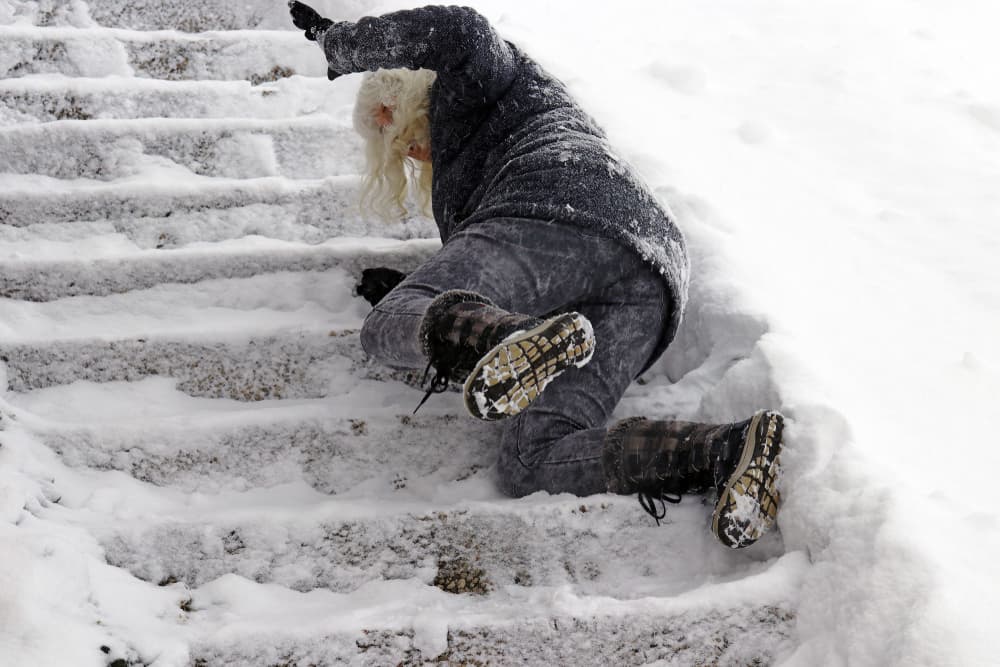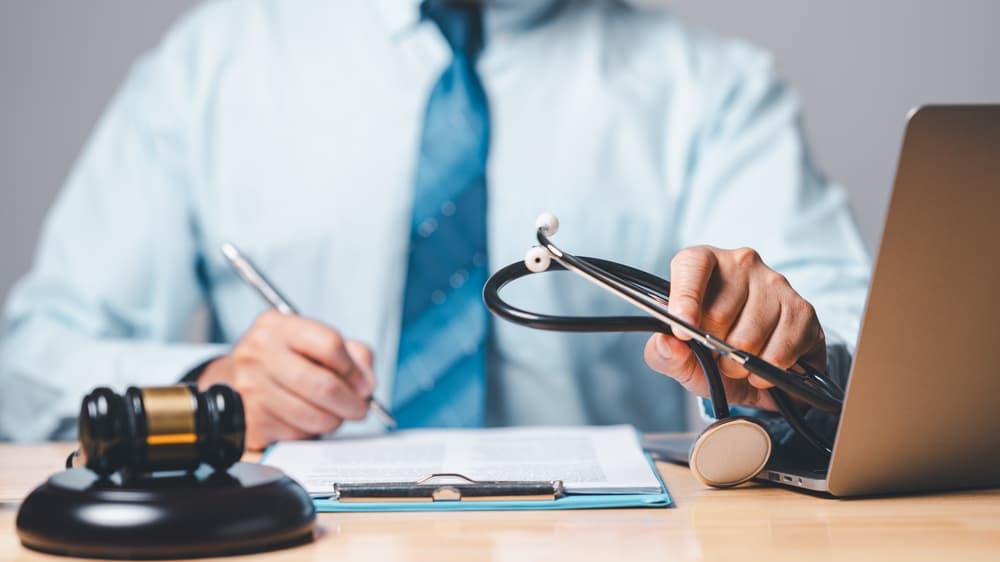When drivers and premises owners fail to act reasonably and responsibly, serious accidents can occur which ultimately lead to debilitating injuries. If you sustained injuries in a recent because of someone else’s negligence, you need to retain an experienced Alberta personal injury lawyer as quickly as possible.
Once you retain a lawyer, they can immediately begin representing you. They can investigate your accident, file a claim with the insurance company, and, if necessary, litigate your case in court.
The time to hire a personal injury lawyer to begin working on your injury case is now. Never delay is seeking the legal representation necessary to obtain full compensation for your injuries.
How do Accidents Usually Occur?
Car accidents and premises accidents can occur due to someone else’s negligent behaviour, leading to injuries and damages for victims. Here are the most common scenarios in which these accidents may happen:
Car Accidents

- Distracted Driving – Drivers who are distracted by activities such as texting, talking on the phone, eating, drinking, or adjusting the vehicle stereo system are more likely to cause accidents due to reduced attention on the road.
- Speeding – Excessive speeding reduces a driver’s ability to react to hazards and increases the severity of accidents.
- Drunk or Drugged Driving – Driving under the influence of alcohol, drugs, or medication impairs judgment, coordination, and reaction times, leading to an increased risk of traffic accidents.
- Reckless Driving – Behaviors such as tailgating, weaving in and out of traffic, or ignoring traffic signals are all forms of reckless driving that can cause accidents.
- Failure to Yield – Drivers who fail to yield the right-of-way at the appropriate times or disobey traffic laws put themselves and others at risk of accidents.
Premises Accidents

- Slip and Fall Accidents – Property owners have a duty to maintain their premises in a reasonably safe condition at all times for the benefit of visitors. Slippery floors, uneven surfaces, or hazards such as loose wires or debris can cause slip and fall accidents that lead to injuries.
- Negligent Security – Property owners may also be liable for accidents resulting from inadequate security measures, such as poorly lit parking lots or lack of security personnel, which can lead to slip and falls and other occurrences on the premises.
- Defective Property Conditions – Unsafe property conditions, such as broken stairs, defective handrails, or malfunctioning elevators, can cause accidents and injuries to property visitors or tenants. When property owners fail to repair these defective conditions, they can be responsible for slip and fall accidents.
If you suffered injuries in one of these occurrences due to someone else’s negligence, you should speak with a local personal injury lawyer right away.
As soon as you retain a lawyer for representation, they can begin aggressively advocating on your behalf.
Injuries in Car Crashes and Premises Accidents
Victims of car accidents and premises accidents may suffer severe, life-altering injuries, including:
- Whiplash – Whiplash is a common injury in car accidents, particularly rear-end collisions. It occurs when the head and neck are suddenly jerked forward and then backward, causing strain or sprain to the neck ligaments and muscles.
- Bone Fractures – Broken bones are a frequent injury in both car accidents and premises accidents. Victims may suffer fractures in the arms, legs, wrists, ankles, ribs, or other bones due to the force of impact or falls.
- Head Injuries – Head injuries are a significant concern in car accidents – especially when a driver or passenger strikes their head on a hard surface, like the window, headrest, or doorframe. These injuries can range from concussions and contusions to traumatic brain injuries (TBIs), which can have long-term effects on quality of life and cognitive functioning.
- Back Injuries – Car accidents and premises accidents can cause injuries to the spine, such as herniated discs, compression fractures, or spinal cord injuries. These injuries can result in chronic pain, limited mobility, and loss of sensation or function.
- Soft Tissue Injuries – Soft tissue injuries, such as bruises, sprains, strains, and contusions, are common in both car accidents and premises accidents. Victims may experience pain, swelling, and limited range of motion due to damage to muscles, tendons, or ligaments.
- Open Cuts and Lacerations – Victims of car accidents and premises accidents may suffer cuts, lacerations, or abrasions from contact with broken glass, sharp objects, or rough surfaces. These injuries can range in severity and may require stitches or other medical treatment.
- Burns – Car accidents involving fires or explosions can cause burns to victims, ranging from minor burns to severe third-degree burns requiring extensive medical treatment and rehabilitation.
- Psychological Harm – In addition to physical injuries, victims of car accidents and premises accidents may experience psychological trauma, such as post-traumatic stress disorder (PTSD), anxiety, or depression, affecting their long-term mental well-being.
Once you retain a personal injury lawyer to handle your car accident or premises accident case, you can focus your full attention on recovering from your injuries.
What are the Qualities of a Good Personal Injury Lawyer?
In a car accident or premises accident case, hiring a good personal injury lawyer can make a significant difference in the outcome of your case.
Here are some qualities to look for when choosing a personal injury lawyer:
- Experience – A good personal injury lawyer should have significant experience with cases that are similar to yours. Look for a lawyer who regularly handles car accidents or premises liability cases and who has a strong track record of successful outcomes for their clients.
- Knowledge – The lawyer should also have a thorough understanding of personal injury law, including relevant statutes, regulations, and case precedents. They can assess the strengths and weaknesses of your case and provide you with sound legal advice.
- Communication Skills – Effective communication is essential in any legal case. A good personal injury lawyer can communicate clearly and effectively with you, explain complex legal concepts in plain language, and keep you informed about the progress of your case.
- Negotiation Skills – Many personal injury cases are resolved through negotiation rather than going to trial. A good lawyer should be a skilled negotiator who can advocate for your rights and interests and negotiate favourable settlement terms with insurance companies or opposing parties.
- Trial Experience – Although many cases settle out of court, it’s still important to have a lawyer on your side who is prepared to take your case to trial if necessary. A lawyer with trial experience can effectively present your case in court and advocate for maximum compensation on your behalf.
- Empathy and Compassion – Dealing with the aftermath of an accident can be stressful and overwhelming. A good personal injury lawyer should show empathy and compassion for your situation, listen to your concerns, and provide support and guidance throughout the legal process.
- Accessibility – Your lawyer should also be accessible and responsive to your needs. They should promptly return your phone calls and emails, answer your questions, and keep you updated on any developments in your case.
- Reputation – Look for a personal injury lawyer with a good reputation in the legal community and among former clients. You can research online reviews, ask for referrals from friends or family members, or consult with legal directories to find a reputable personal injury lawyer in your area.
How Can a Lawyer Assist with My Personal Injury Claim or Lawsuit?

A personal injury lawyer can provide invaluable assistance with a car accident or premises liability claim by offering knowledge, guidance, and advocacy throughout the legal process.
Here are various ways in which a personal injury lawyer can help you:
- Case Evaluation – A personal injury lawyer can assess the merits of your case by reviewing the facts, evidence, and applicable laws. They can then determine liability, estimate the value of your claim, and advise you on the best course of action.
- Investigation – Lawyers have the resources and knowledge to conduct a thorough investigation into an accident. This may involve gathering evidence, obtaining witness statements, analyzing accident reports, and consulting with experts to strengthen your case.
- Legal Representation – Your lawyer will serve as your advocate and represent your interests during settlement negotiations with insurance companies or opposing parties. They will handle all communication on your behalf and work to achieve a fair settlement offer that compensates you for your injuries and damages.
- Negotiation – Personal injury lawyers are skilled negotiators who can negotiate with insurance adjusters or opposing lawyers to reach a favourable settlement. They will fight for maximum compensation for your losses, including lost income, pain and suffering, and more.
- Litigation – If a fair settlement cannot be reached through negotiation, your lawyer can file a lawsuit on your behalf and represent you in court. They will prepare your case for trial, present evidence, cross-examine witnesses, and argue on your behalf to seek justice and fair compensation.
- Legal Guidance – Throughout the legal process, your lawyer will provide guidance and advice to help you make informed decisions about your case. They will explain your rights, options, and legal strategies and answer any questions you may have along the way.
- Document Preparation – Personal injury claims involve extensive paperwork, including legal documents, court filings, and correspondence with insurance companies. Your lawyer will handle all aspects of document preparation and ensure that deadlines are met and that the paperwork is filed correctly.
- Settlement Review – Before accepting a settlement offer, your lawyer will review the terms and advise you on whether it adequately compensates you for your injuries and damages. They will negotiate on your behalf to seek a fair settlement that meets your individual needs.
By enlisting the help of an experienced personal injury lawyer, you can pursue a car accident or premises liability claim with confidence, knowing you have a knowledgeable and dedicated advocate fighting for your rights and interests.
Factors That Affect the Value of a Personal Injury Case
Several factors can influence the total value of a personal injury case involving a car crash or premises accident. These factors may vary significantly, depending upon the specific accident circumstances and extent of the victim’s injuries.
Here are some key factors that may affect the total value of a personal injury case:
- Severity of Injuries – The severity of the injuries sustained is one of the most important factors in determining the value of a personal injury case. More severe injuries, such as traumatic brain injuries, spinal cord injuries, or permanent disabilities, typically result in higher compensation amounts to cover lost income, pain and suffering, and emotional anguish.
- Lost Wages – If the victim is unable to work due to their injuries, they may be entitled to compensation for lost income. The total value of the case may increase to account for the victim’s lost earning capacity – including future lost income if the injuries result in a long-term disability or inability to return to work.
- Pain and Suffering – Compensation for pain and suffering is another significant component of the total value of a personal injury case. This includes physical pain, emotional distress, and mental anguish that the victim experienced.
- Permanent Disability or Disfigurement – If the victim suffers permanent disability or disfigurement as a result of the accident, they may recover additional compensation to address the long-term effects on their quality of life and ability to perform daily activities.
- Available Insurance Coverage – The amount of insurance coverage available to compensate the victim can also affect the total value of the case. If the at-fault party’s insurance policy limits are insufficient to cover the victim’s losses, other sources of compensation may need to be pursued, such as underinsured motorist coverage or personal assets of the negligent party.
Talk With an Experienced Personal Injury Lawyer in Your Area Today
If you suffered injuries in a recent accident that resulted from someone else’s negligence, you should consult with a local personal injury lawyer in your area right away.
Your lawyer can promptly investigate your accident circumstances, gather evidence, and begin pursuing the compensation you need to become whole again – either through a favourable insurance company settlement offer or litigation result in court.
